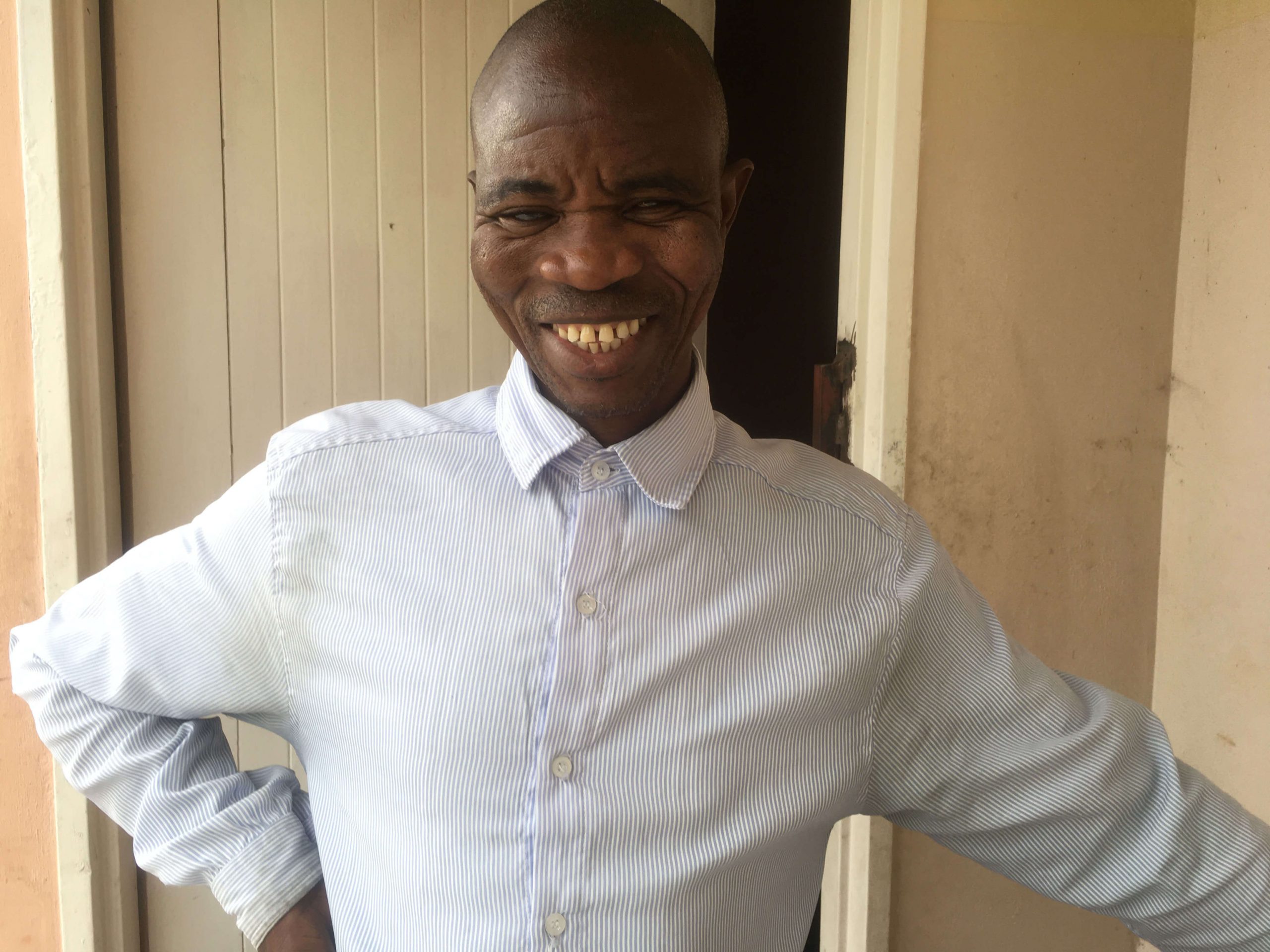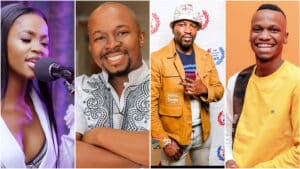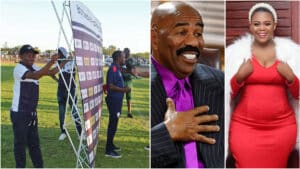With a rich, decorated background in folklore, Maun musician, Gaobiwe Thapson recently made the switch to Gospel, changing genres with seamless ease.
His success comes as little surprise to those who know him; indeed, there is something special about this multi talented 49-year-old.
Left blind by a bout of smallpox at the age of four, Thapson has had to do things the hard way, from dressing unassisted, to learning to play guitar on his own, cooking, doing own laundry including walking the streets unassisted.
A jolly character who is a friend to almost anyone in Maun, Thapson recently formed, ‘Re a dira Society’, set-up to bring disabled Ngamiland artists under one roof so they can share ideas and find ways to penetrate the market.
In this interview with FRANCINAH BAAITSE, Thapson talks about his music career, challenges and his need for a manager and a wife.
Were you born blind?
No. I lost my sight when I was four years old, in 1977.
They said I had smallpox, my whole body and eyes were covered in sores; when I finally opened my eyes from my hospital bed my eyes were dead.
Do you have memories of being able to see?
Not at all, I recall very faintly, but nothing that can make sense.
All I know is that I once was able to see.
What are the challenges that come with blindness?
Eish, there are many – especially as a performing artist.
I need to regularly travel to perform or promote my music, but it is hard and sometimes impossible when I have nobody to guide me.
In today’s technology era, events and competitions are advertised online so I miss out a lot on those unless somebody remembers and informs me about them.
Sometimes I wish to travel to neighbouring villages such as Gantsi or Shakawe to promote and sell my CDs or hold a show.
I have those ambitions but it is hard because I am all alone.
For example, I recently scooped position one in folklore category in the regional competition for the annual national arts festival.
On the 9th of this month I have to compete in the finals in Palapye in the Central district and I have nobody to travel with.
Those are some of the challenges that I have to deal with in my day-to-day life.
Regionals were held in Gumare, how did you get there?
I was assisted by a good friend but this time around he is not well.
With all your good music and talent, how come you do not have a manager or promoter?
Eish, the problem is I happen to run into untrustworthy individuals, full of promises yet deceitful.
But I do need a manager, it will make my life a lot easier and that way my music will get the attention and sales it deserves.
When and where did you learn to play a guitar?
I learnt in 1997 when I was studying leather works at Thusong Rehabilitation Centre.
There was this white lady called Sarah, she gifted the guitar to me.
In fact she said it was given to her as a gift but she did not know how to play it.
I told her I didn’t know how to play it either, but that I will learn.
So nobody taught me, but I learnt on my own to play it.
Quite an incredible achievement! How many albums have you released so far?
I have eight albums, counting the one I was launching last week.
The first was titled Ga se mang le mang, followed by Mareledi, Fatshe la Botswana, El Nigro, Jeso ke Lefika, Talente, Mareledi (remix) and finally Modimo ke Mowa.
Which of the albums sold best?
Ga se mang le mang and Mareledi
What tangible achievements have you accomplished through your music?
Tangible things that I can point out are that I have been able to support my two children aged 15 and 5 years of age.
I also can afford basic staff for myself.
Are you a member of Copyright Society of Botswana (Cosbots), if so what have you benefited from it?
I am a member.
I would say the rewards are not what I had expected and above that they come in very slowly.
It can take up to three months to get payment from them yet our music is playing almost every week on local radio stations.
When was the last time you received royalties from them and how much did you get?
Last November, P1, 000. Music is expensive, to cut a CD does not come cheap: one song will cost around P800 and then you have people who copy our songs and share them on memory sticks or even sell those to their circle of friends at our expense.
They pirate our music without a care that we have children to support and we work hard for that.
Talking about children, are you a married man?
No I am single.
I do have children but I am no longer with their mothers, so I am all alone.
I am searching for a woman who can be my life partner.
Somebody who will care and support me in this journey called life.

So tell me, with your previous relationships, what did you do to win the women’s love?
I don’t just stay home, when I am out there or in town, I do get to greet and chat with people and when I feel the voice of a woman that I feel I love, I do tell them that ‘look, I need somebody to take care of me’ and if the woman is interested then the rest is history.
A lot of men learn about women and girls through their friends; some even watch videos about how to handle a woman, was it a challenge for you to be with a woman the first time?
These things come natural.
You don’t need a light or eyes to see where to go. As a person you get to understand your body and its needs.
So as much as I know how my body needs to be handled then I know how well to handle the opposite sex.
Even the Bible says a man’s body is a woman’s body, so it’s all about feelings.
You don’t need a demonstration to know what your body needs.
Some men do it seems! One other thing I wanted to know, when we sleep, most of us dream, with our dreams bursting with image and colour.
What are your dreams like, can you see?
Yes, when I dream I see. Even the people that I sometimes talk to, I see them in dreams sometimes, what they do, their clothes and colours, I see them.
You directed me to your house and described the neighbouring houses and their paintings, turns and landmarks so accurately, how do you do that?
I do ask people and pay attention to detail.
You recently formed a society for artists who have physical disability, how is it holding up?
We are on.
In fact we had a scheduled meeting today but as you know people with disability have many challenges, the meeting could not take place, but we do communicate and we will get there.
You grew up in Maun’s Botshabelo ward, the same neighbourhood as legendary guitarist and musician, Stiger Sola – did this have any bearing on your decision to pursue a music career?
Yes, because I grew up liking his music. He was my senior and he encouraged me a lot.
Your last word?
I need a wife, I am lonely and even this past night it was hard for me to sleep.
There are so many things that can only be possible when done by two people.
I want an honest person who will dearly support me in my endeavours, including music.

















